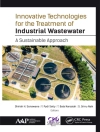Precarious housing conditions are on the rise across Europe. Precarious housing refers to housing that is either unaffordable or unsuitable, for example, because it is overcrowded, in poor dwelling condition, poorly located or even unsafe. While there is much literature on the strong link between employment and housing insecurity and abundant investigations into different aspects of precarious housing, hardly any attempt has been made so far to provide a consolidated overview of the whole topic and thereby put these different facets into the joint perspective of housing-related poverty.
This Critical Guide adds to the debate on causes, symptoms, consequences and possible solutions and makes them accessible for teaching, learning and self-study across multiple disciplines. It is the result of ‘Pus H – Precarious Housing in Europe’, a Strategic Partnership funded under Erasmus+. The seven chapters of this book examine a range of themes, focusing on how experiences of precarious housing intersect with other dynamics of precariousness, associated with insecure immigration status, racism and discrimination, class, wealth, and income disparities, and forms of homelessness and displacement. Each chapter draws on examples from across Europe to explore different experiences of precarious housing, and different responses to these conditions.
लेखक के बारे में
This book and the corresponding e-modules are the product of intensive inter- and transdisciplinary collaboration and intellectual exchange that received funding by the Erasmus+ Programme of the European Union as ‘Pus H – Precarious Housing in Europe’. Between 2019 and 2022, this Strategic Partnership united colleagues from seven institutions from both older and younger EU member states. It was coordinated by Leuphana University in Lüneburg, Germany. In addition to Leuphana’s Center for the Study of Democracy, the consortium comprised four further institutions of higher education involved in undergraduate, graduate and postgraduate education – Utrecht’s Department of Human Geography and Spatial Planning of the Faculty of Geosciences, Durham’s Department of Geography, the IUAV in Venice hosting the ‘SSIIM UNESCO Chair on the Social and spatial inclusion of international migrants -Urban Policies and Practices’ and the University for Continuing Education Krems with its cluster on social space based research in built environment. These universities were joined by two partners from Bulgaria and Hungary representing countries where informal and precarious housing is a long-standing phenomenon. The Centre for Economic and Regional Studies in Bu-dapest is a public research institute and the Open Society Institute in Sofia is a non-governmental, non-for-profit organization. Both have an established repu-tation for providing scientific evidence and policy advice on precarious housing.












